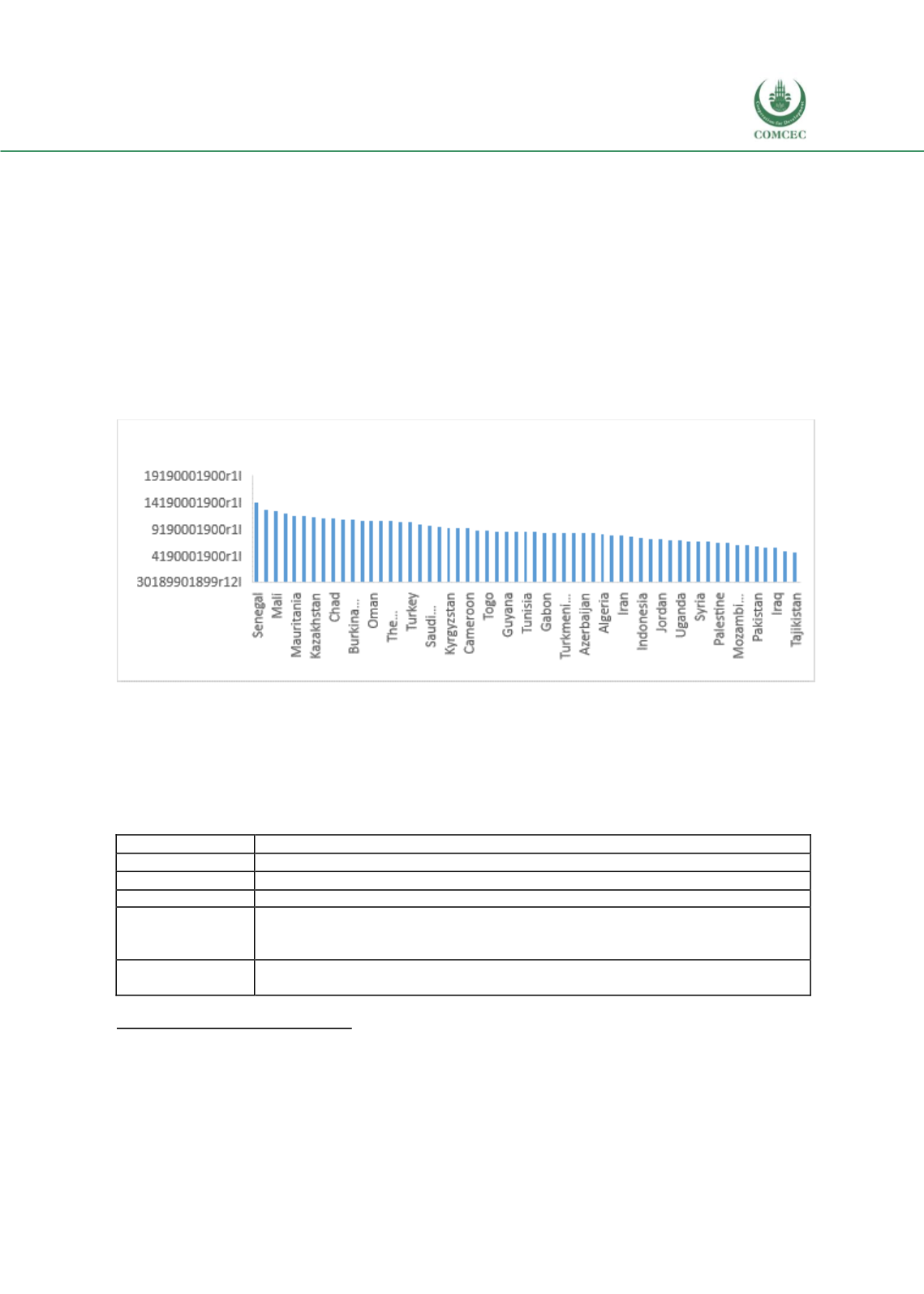

Increasing the Resilience of the Food Systems
In Islamic States in Face of Future Food Crises
43
birthweight risks and stunting among children, linked to the risk of excess weight gain and
obesity in later years.
138
Micronutrient deficiencies, or "hidden hunger," is caused by a lack of intake or absorption of
vitamins and minerals and impacts over 2 billion
139
people globally. Poor food access often
contributes to malnutrition in hidden ways. For example, an energy-dense diet that lacks iron
may lead to obesity and anemia in the same individual.
Anemia is caused by a number of factors, but iron deficiency is the primary cause; it leads to half
of all anemia cases. Nutritional iron deficiency is a common occurrence in populations with
monotonous, plant-based diets and low meat consumption.
140
Source: Global Nutrient Database
141
Many OIC countries are burdened with more than one form of malnutrition. The malnutrition
indicators included the following: stunting in children under five and its burden limit (20% or
more); anemia amongwomen aged 15-49 (20%or more cut-off); overweight women 18 or older
(35% or more).
142
Table 17: OIC Countries with Multiple Forms of Malnutrition
Condition
OIC Countries Affected
Overweight
Brunei Darussalam
Anemia
N/A
Stunting
N/A
Overweight and
Anemia
Algeria, Azerbaijan, Gabon, Guyana, Iran, Jordan, Kazakhstan, Kuwait, Kyrgyzstan,
Lebanon, Morocco, Oman, Saudi Arabia, Senegal, Palestine, Suriname, Tunisia, Turkey,
Turkmenistan, Uzbekistan.
Overweight and
Stunting
N/A
138
FAO, IFAD, UNICEF, WFP andWHO. (2018). The State of Food Security and Nutrition in theWorld 2018: Building climate
resilience for food security and nutrition. Retrieved
fromhttp://www.fao.org/3/i9553en/i9553en.pdf139
Our World in Data. (2017, August). Micronutrient Deficiency. Retrieved
fromhttps://ourworldindata.org/micronutrient-deficiency
140
UNHCR Anemia Strategy Review. Retrieved
fromhttps://www.unhcr.org/5669540d9.pdf141
Global Nutrient Database – a joint project between UNFAO and the Institute for Health Metrics and Evaluation. Retrieved
fromhttps://nutrition.healthdata.org/global-nutrient-database142
Global Nutrition Report 2018. Retrieved
fromhttps://globalnutritionreport.org/reports/global-nutrition-report-2018/Figure 12: Zinc Availability across the OIC (mg/person/day) - 2013
















